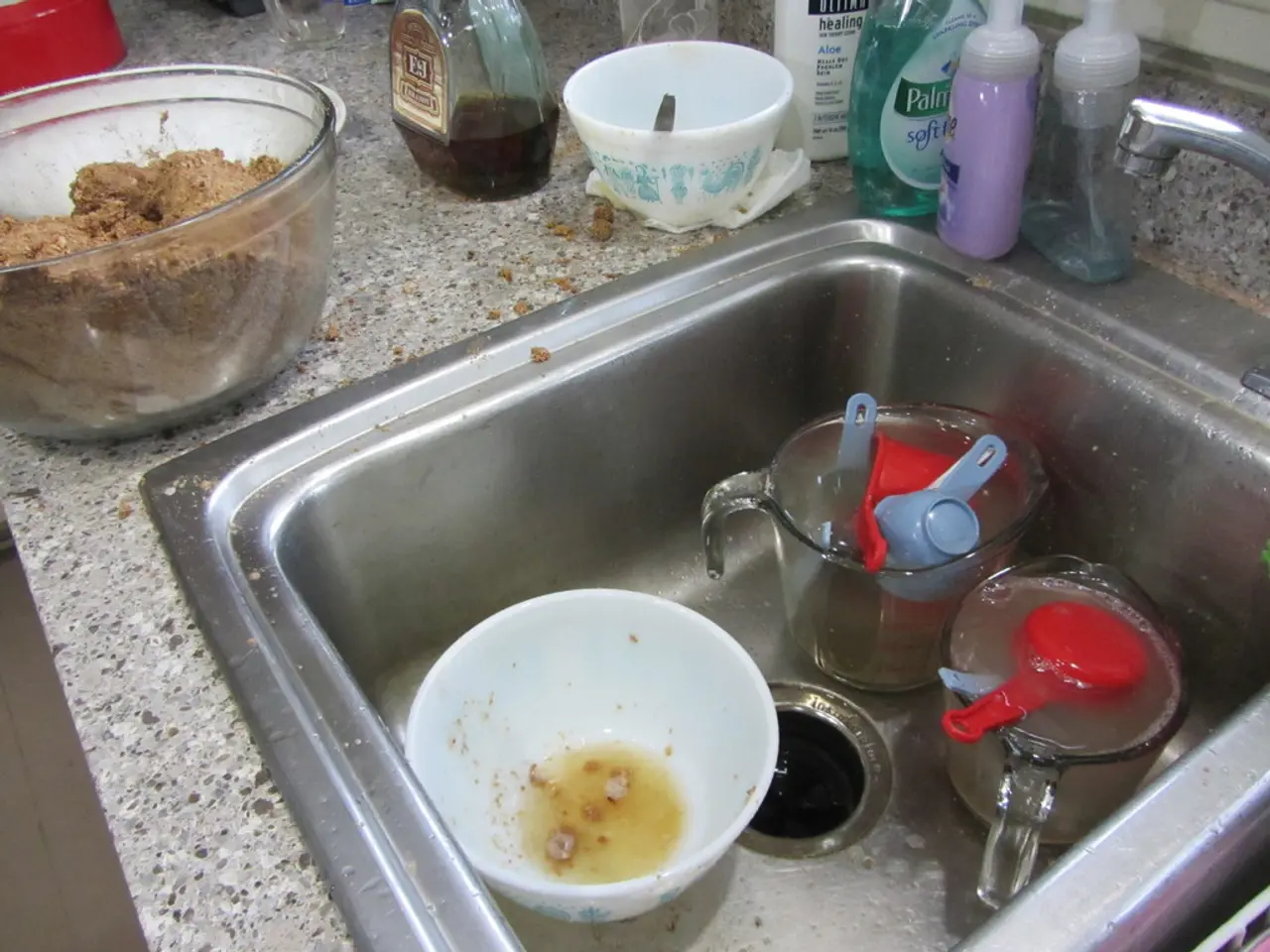Skin troubles influencing your confidence? Explore solutions: Home cures for dry skin and treating acne breakouts
Acne and dry skin are common conditions that can affect many people, but with the right skincare practices and natural remedies, they can be effectively managed at home.
Acne occurs when hair follicles become blocked, often due to an overproduction of sebum, dead skin, and other debris. To prevent dry skin and acne, avoiding makeup or skin products that irritate the skin, looking for products labeled "noncomedogenic," and washing all makeup off before bed are recommended.
Effective home remedies for treating both dry skin and acne focus on moisturizing and healing properties while addressing inflammation and bacteria that cause acne. Some of the best natural remedies include Aloe Vera, Honey, Turmeric, Oatmeal, Coconut Oil, and Tea Tree Oil.
Aloe Vera, known for its soothing and healing properties, can relieve dryness and help improve acne by calming irritation and redness. Honey, with its moisturizing properties and antimicrobial effects, inhibits acne-causing bacteria and nourishes dry skin. Turmeric, containing curcumin, a compound with anti-inflammatory and antimicrobial effects, can reduce acne and soothe dry, irritated skin. Oatmeal soothes dry, irritated skin with its moisturizing and anti-inflammatory properties, while Coconut Oil acts as a gentle emollient by filling in dry gaps between skin cells and providing hydration. Tea Tree Oil, with its antimicrobial properties, is useful against acne-causing bacteria but should be used diluted and with caution to avoid irritation.
Incorporating antioxidant vitamins like vitamin A, C, and E into your routine or diet can protect skin from environmental damage and support skin renewal. Gentle exfoliation and steam treatment can help clear pores without overly drying the skin. Regularly moisturizing the skin, especially after a bath or shower, may help treat dry skin, even in cases of eczema.
In moderate-to-severe cases of acne, prescription medications such as antibiotics or retinoid creams may be necessary. Over-the-counter treatments for acne often contain benzoyl peroxide, which reduces bacteria and inflammation. Treatments for dry skin may include moisturizers, stronger moisturizers containing urea or lactic acid, corticosteroids, or immunosuppressant drugs in severe cases.
By combining these remedies thoughtfully—hydrating with aloe vera, honey, or oatmeal while using turmeric and tea tree oil for acne control—you can effectively manage both dry skin and acne at home. Always do a patch test before trying new remedies to ensure no adverse reactions, especially if you have sensitive skin. If skin issues persist or worsen, consult a dermatologist.
Avoiding abrasive products and touching the skin can prevent irritation when treating acne. Washing the skin gently with lukewarm water, particularly after sweating, can help treat acne. Dry skin can contribute to acne development, but it can also be a sign of an underlying condition such as dermatitis. Treating underlying conditions such as dermatitis can help reduce dry skin.
Choosing a laundry detergent that does not irritate the skin can also help prevent dry skin and acne. If over-the-counter treatments and good skincare practices are not working to treat both dry skin and acne, a person should see a dermatologist for further help and potential prescriptions for stronger medication.
Regularly moisturizing the skin, using moisturizing cleansers, applying sunscreen, and incorporating antioxidant vitamins into your routine or diet can help protect dry, acne-prone skin from further damage. By adopting these practices, you can maintain a healthy, glowing complexion and effectively manage dry skin and acne.
- To relieve skin dryness and manage acne, consider incorporating aloe vera, honey, turmeric, oatmeal, coconut oil, and tea tree oil into your skincare routine.
- Aloe vera possesses soothing and healing properties that can aid in alleviating dryness and reducing acne-related irritation.
- Honey, with moisturizing properties and antimicrobial effects, can nourish dry skin and inhibit acne-causing bacteria.
- Turmeric, containing anti-inflammatory and antimicrobial compounds, can help reduce acne flare-ups and soothe dry, irritated skin.
- Oatmeal, with its moisturizing and anti-inflammatory properties, can alleviate dry, irritated skin and support healthy skin barrier function.
- Coconut oil functions as a gentle emollient, providing hydration by filling in dry gaps between skin cells.
- Tea tree oil, an antimicrobial powerhouse, may help control acne-causing bacteria, but it should be diluted and used with caution to avoid skin irritation.
- Incorporating antioxidant vitamins (A, C, and E) into your skincare routine or diet can help protect the skin from environmental damage and promote skin renewal.
- To maintain a healthy, glowing complexion, regularly moisturize the skin, use moisturizing cleansers, apply sunscreen, and consider adopting a balanced health-and-wellness routine focusing on skin-care and haircare.




